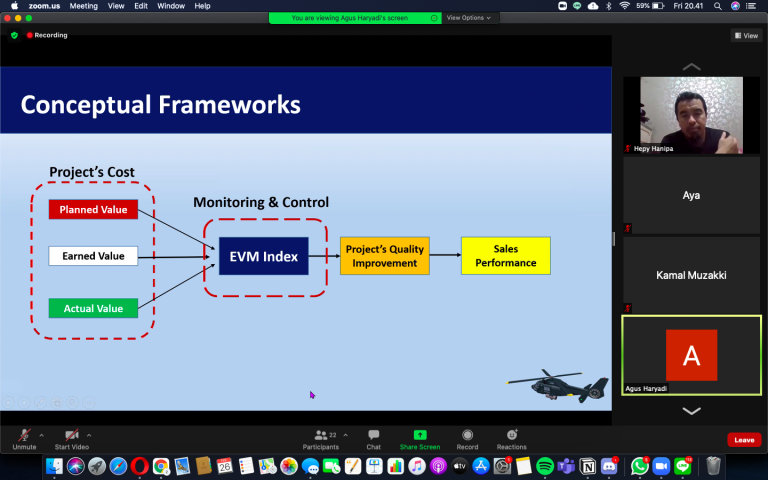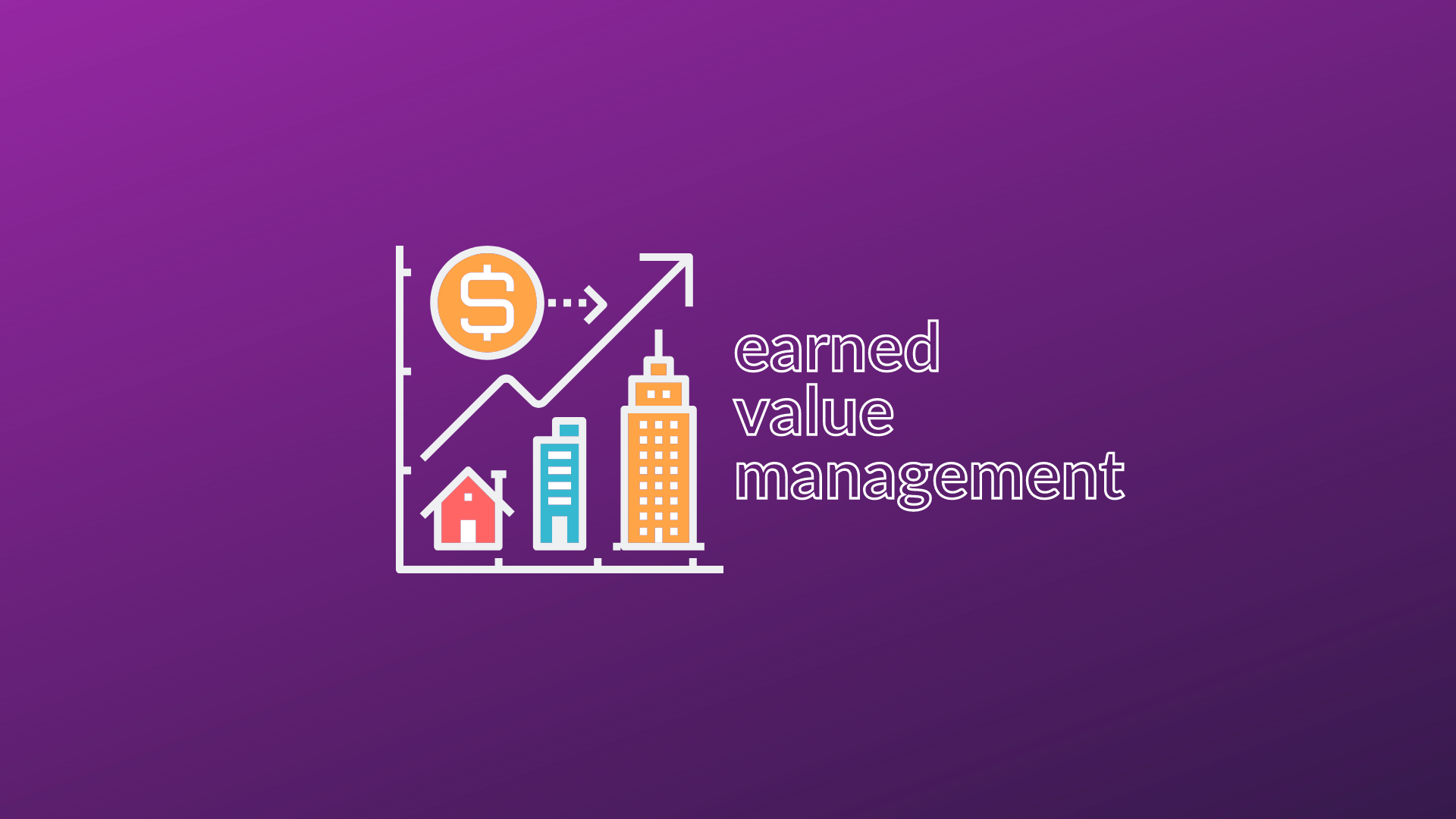Earned value suggests that the utilization of resources should provide something of value to those who use the resources. The Earned Value Management System (EVMS) is a means of assessing the quality and usefulness of resource usage for various purposes. Managers developed the definition and method of EVM in order to more reliably forecast possible project outcomes when moving against corporate priorities and goals.
Agus Haryadi, a Business Consultant and an Entrepreneur, joined us in the discussion of Earned Value Management concept in improving cost monitoring and control of projects (26/02/2021). He opened the discussion with a short review of triple constraints in project management, which include: cost, the scope of the project, and time.
“The satisfaction of these aspects determines the quality of the project. Oftentimes, these days, projects are heavily influenced by the cost aspect that is not satisfied (used for events outside the project), which causes the project to fail or the quality to not be on par with the expectations,” Agus inspected.
Later, he raised a question regarding the importance of project management. To which he elaborated with instances where projects were stalled due to overlooked aspects. The first example was plenty of solar panels that were built but their processes were halted due to an existing surplus of electric power in Java and Bali.

“We have not been able to discover ways to distribute the surplus of power to islands outside Java and Bali,” he claimed. So, the quickest solution was to build solar panels outside these two islands. However, the issue with constructing these panels outside these islands is that solar power was still rather unstable as climate heavily impacts the energy produced.
“A backup is needed to support the solar power,” he said.
The second example was a case where an apartment complex halted its construction due to the lack of demand. When building an apartment property, there needs to be a guarantee that customers will purchase all the units since this determines the construction budget. So, as the demand decreases, the budget also decreases as there is no guarantee that the units will be sold.
“The Initial budget may not be equal to the budget required while the project is ongoing. There may be instances where there is an issue faced during the construction, hence, an increase in budget tends to occur,” Agus explained.
The budget factor is important because it determines the efficiency of the project. If for example, a portion of the project is sacrificed due to the lack of budget to complete the project, that means the project is inefficient.




